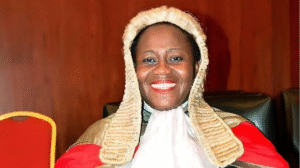
The Africa Judicial Independence Fund (AJIF) has issued a strong statement warning against the politicisation of ongoing discussions surrounding the possible removal of Ghana’s Chief Justice, urging stakeholders to protect the independence of the judiciary and adhere strictly to constitutional procedures.
In a press release signed by Prof. Willy Mutunga, Chair of the AJIF Advisory Board, and Saeed Salahudeen, Fund Manager, the organisation stressed that while the Constitution provides a clear framework for the removal of a Chief Justice under Article 146, public debate on the matter must be grounded in respect for democratic norms and legal integrity.
“The removal of the Chief Justice must not become a political football,” the statement read. “This process is designed to insulate the judiciary from undue political interference and to uphold the independence, integrity, and dignity of the Office of the Chief Justice.”
AJIF acknowledged that, based on currently available information, there is no evidence that the constitutional process has been breached. However, it expressed concern over the broader weaknesses in the current legal framework governing judicial appointments and removals—weaknesses that leave room for potential political manipulation.
While the Fund has taken no stance on the merit of calls for the Chief Justice’s removal, it emphasised that deeper structural reforms are urgently needed to safeguard judicial independence and restore public confidence in the justice system.
AJIF’s statement also referenced a 2023 public lecture at the University of Ghana, where stakeholders raised alarm over perceived judicial partiality and growing distrust among citizens. Reports of alleged executive overreach, such as partisan judicial appointments, were cited as symptoms of a deeper crisis.
“Absent deeper institutional reforms, a decision to remove or retain the Chief Justice will not address the structural problems undermining judicial independence in Ghana,” the statement warned.
To rebuild trust, AJIF recommended a series of key reforms, including:
- Transparent and merit-based judicial appointments;
- Strengthening the Judicial Council’s independence and integrity;
- Improving judicial funding and administrative autonomy; and
- Promoting public discourse on judicial accountability within the framework of the rule of law.
The Fund concluded by calling on all actors—politicians, civil society, legal professionals, and the public—to pursue lawful, inclusive reforms that reinforce the judiciary’s role as a neutral and trusted arm of government.
“Only then,” the statement declared, “can we build a truly impartial and trusted system of justice.”






